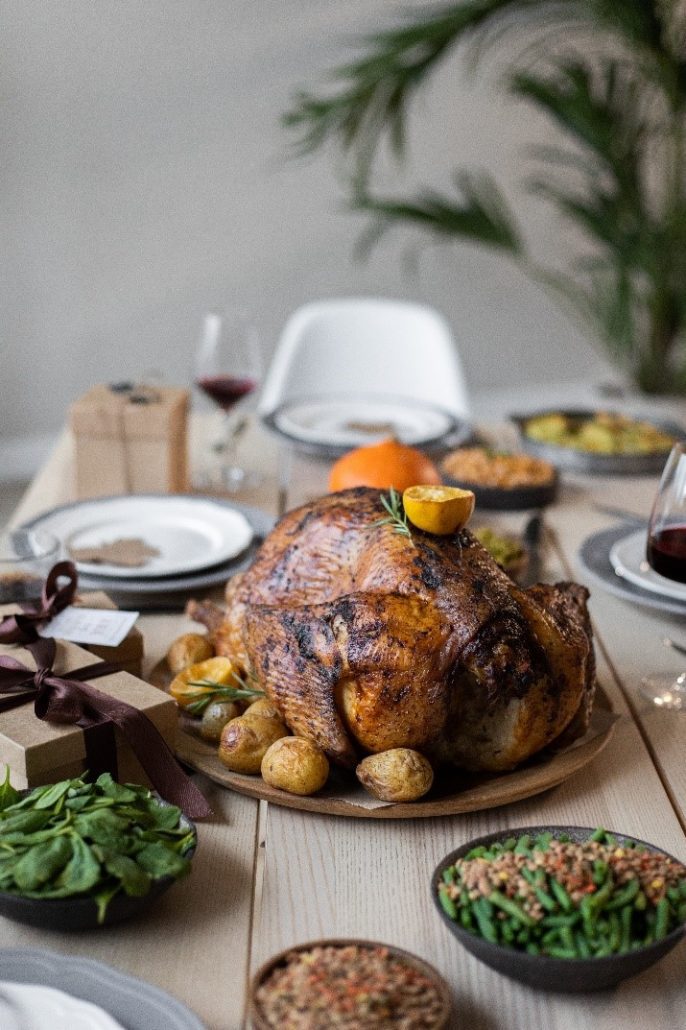The holidays are fast approaching, and these festive times often revolve around eating a large meal with family. Food is a significant part of many family traditions and cultures, and you may worry about how you can enjoy these gatherings after bariatric surgery. If you’re fully recovered from your bariatric surgery, you’re likely able to eat all food types and textures. A sumptuous dinner may tempt you, but holiday meals contain many more calories than you may realize.
Understanding Your Nutrition Needs
Your dietary needs will depend on several factors, such as your height and activity level. However, most patients that are six months or more into their recovery typically consume 900-1000 calories per day. You’ll also need to consume 60-80g of protein per day to prevent muscle wasting. Each gram of protein contains four calories, meaning 240-320 of your total calories will come from protein. Carbs and fats matter as well. Most bariatric patients consume around 90g of carbs per day (360 calories) and 25-35g of fat (225-315 calories).
Thanksgiving Dinner Nutrition Information
Holiday meals don’t often align with bariatric diets as they are carb-heavy and often overloaded with fat. Here is a breakdown of a traditional Thanksgiving dinner per serving:
- Turkey – 2 slices: 120 calories, 0g carbs, 2g fat, 24g protein
- Stuffing – ½ cup: 150 calories, 20g carbs, 1g fat, 3g protein
- Mashed potatoes – ½ cup: 180 calories, 18g carbs, 6g fat, 2g protein
- Gravy – ¼ cup: 30 calories, 3g carbs, 1g fat, 1.5g protein
- Macaroni and cheese – 1 cup: 370 calories, 45 carbs, 18g fat, 7g protein
- Sweet potato casserole with marshmallows – ½ cup: 326 calories, 62g carbs, 8.5g fat, 3g protein
- Green bean casserole – ½ cup: 118 calories, 11g carbs, 7g fat, 2g protein
- Cranberry sauce – ¼ cup: 110 calories, 28g carbs, 0g fat, 0g protein
- Dinner roll: 90 calories, 18g carbs, 1g fat, 3g protein
- Pumpkin pie slice: 323 calories, 46g carbs, 13g fat, 5g protein
Calories in a Thanksgiving Meal
Added all together, this meal contains a whopping 1817 calories, 251 carbs, 57.5g fat, and 50.5g protein. One Thanksgiving dinner is twice the number of calories and fat you need for two days. The carbs amount to three days’ worth of your nutritional needs. Meanwhile, the protein content falls short in comparison.
How to Enjoy Thanksgiving Dinner After Weight Loss Surgery
You don’t need to hide from your family or isolate yourself during the holidays. The same tactics you use in your day-to-day life will work for filling your holiday plate. Start with your protein first, which is most often turkey at Thanksgiving. Turkey is a great protein option, as it’s lean and easy to add flavor to with herbs and spices.
Focus on your veggies next. Baked or steamed green beans, carrots, and brussels sprouts are all good options. If you do go for the green bean casserole, nix the French-fried onions. Limit the amount of cream sauce you add to your plate as well. Allow yourself a bite or two of your favorite holiday dishes. Depriving yourself completely isn’t realistic and is more likely to end in binge eating.
Desserts are trickier, as there isn’t much nutritional value to many of them and few ways to reduce their carb load. However, small portions are always a good place to start. You can also enjoy some pie by having a few bites of the filling without the crust.
If you eat more than you intended, you’ll likely feel fuller than usual. You can avoid this discomfort by eating slowly and saving your leftovers for another day. Consider going for a walk after Thanksgiving dinner, as the activity aids digestion. It’s also a way to get your family involved in your healthier lifestyle.
Weight loss success after bariatric surgery requires a commitment to your new diet. With proper planning, you can enjoy the holidays with your family and friends, including the food. Contact us to learn more about weight loss surgery.





